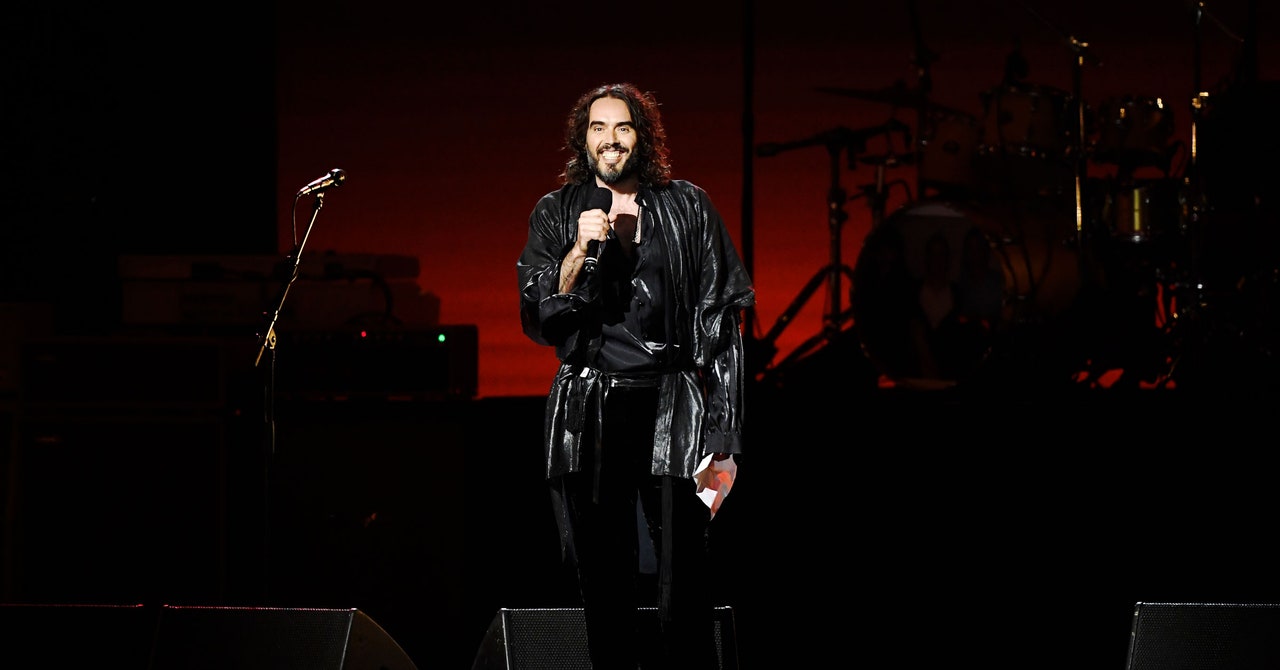There was a brief, strange moment in 2015 when Russell Brand mattered in mainstream British politics. With an election looming, the opposition Labour Party was trailing in the polls against a coalition government that was the very definition of establishment—led by an Eton- and Oxford-educated prime minister in David Cameron and his Westminster- and Cambridge-educated deputy, Nick Clegg, now president of global affairs at Meta. So the Labour leader, Ed Miliband, went seeking the endorsement of Brand, the actor, comedian, and emerging online provocateur whose anti-corporatist screeds to his 9.5 million Twitter followers and 100,000 YouTube subscribers gave him the appearance of a power player. Miliband got Brand’s endorsement but lost the election.
Since then, Brand’s reach has exploded. His YouTube channel now has 6.6 million subscribers, his X account more than 11 million followers. But his anti-establishment message has morphed, from a broader, almost coherent response to the politics of fiscal austerity that shaped the UK after the 2008 financial crisis to a series of cultish, conspiracy-driven narratives that draw in Covid denialism, Russian disinformation, and the far-right-inspired “Great Reset” theory, united by the meta-conspiracy that the mainstream—the “elites”—have darker agendas based on control.
On Saturday, the UK’s Channel Four aired an hour-long documentary in which several women accused Brand of rape and sexual assault. Before the broadcast, the comedian came out swinging. In a video on his YouTube channel, titled “So, This Is Happening,” Brand not only denied the accusations, but leveled some of his own: “[It] makes me question, is there another agenda at play?” he said.
One of Brand’s alleged victims, speaking on the BBC, called his statement “insulting” and “laughable.” But within the alt-media, there was a show of support from figures including Andrew Tate, the misogynist influencer who is awaiting trial for rape and human trafficking in Romania, Tucker Carlson, the former Fox News anchor, who now runs a conspiracy-inflected show on X, and Alex Jones, fined $1.5 billion for lies about the victims of a school shooting. X’s owner, Elon Musk, posted underneath Brand’s video: “Of course. They don’t like competition”—referring, apparently, to those same dark forces referenced by the comedian. The camaraderie between conspiracy theorists, the alt-right, and the “manosphere,” is grimly predictable. Their shared narrative is one of alienation from the mainstream, outsiderdom, and dark forces massing to thwart them. “Opposite day, but with real consequences for people,” as Marc Owen Jones, an expert on disinformation and social media at Hamad bin Khalifa University in Qatar, puts it.
It’s also their audience strategy and the foundation of their business model. Conspiracy influencers are content producers. Moments that generate intense emotions—even if the content producer is, themself, the focus of the scandal—are fantastic for engagement, and they feed the grim economics of the conspiracy business.
Brand’s YouTube channel is a compendium of contemporary bullshit. Covid lockdowns were exercises in social control. The US has “biolabs” in Ukraine; the West’s support for Ukraine is capitalist imperialism. Central bank digital currencies are the government’s attempts to control your money. Evolving gender norms are causing a “crisis in masculinity” and declines in fertility. There are routine crossovers between Brand’s content and the wider conspiracy cinematic universe, with clips on his channels of conspiracy theorist Robert Kennedy Junior, far-right Hungarian president Viktor Orban, and Carlson, who recorded an interview with Brand in August.
Read the full article here





